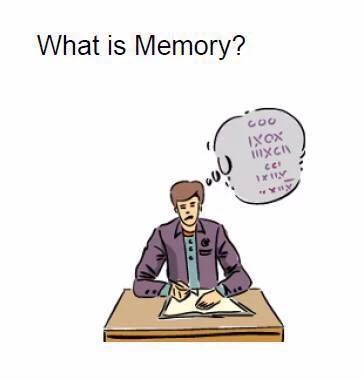
 登录 English Version
登录 English Version

文章来源:英耐商务英语 上传时间:2020-05-12 浏览次数:次
“Another improvement for me, I think, is the right method to learn English. Actually, I learnt English in schools for more than 10 years, but the learning methods were not effective for me. The biggest mistake I have ever made is to pay too much attention to reading and writing, rather than listening and speaking……”
——英耐学员,一位专业能力很强的工程师
中国人一直在学英语,英语考试过了,文章也可以阅读了,可还是很难和外国人进行正常交流,听不懂、也不会说,这是很多学英语的中国人的通病。问题在哪里?并不是我们学习能力差,根源在于——传统的英语教学&学习方式。

What is Language Learning?
什么是语言学习
Learning involves changes in your brain. Electrochemical changes and new connections between neurons must occur for learning to take place. Just as when you are working on your computer, if you don’t save your work it will be lost. Saving data in the brain involves changes in the brain. Some of these changes happen quickly, and some of these changes happen over a period of days or weeks.
人们在学习时,大脑也在相应的产生变化。开始新的学习时,神经元之间发生电化,且相互间建立新的链接。就比如当你使用电脑时,如果你不保存的话,信息就会丢失一样,大脑里存储信息时就会涉及到大脑里的众多变化。有些信息变化的非常快,而有些需要几天或几个星期。对于语言的掌握需要持续性高频度的重复听说练习才能够让这种大脑中的神经元结构变得牢固,存储的信息才不会丢失。

Language Learning is Skill Development
语言学习其实是一项技能的掌握
Learning a language is like learning how to play a musical instrument. Frequent and effective practice is the key. The skills of listening and speaking, in particular, require speed. When you listen or speak, you have very little time to process the language, much less time than when you read a text. There is no time to ‘remember’ a word or rule. It must be automatic. To develop this automatic ability, practice and repetition are essential, and without using text as a support.
学习一门新的语言好似如何学习一种乐器。有频率、有效率的练习是其中的关键。对于听说技能,尤其需要流利度。当你听或说时,你几乎没有时间去思考使用一门语言,这时间远远比你阅读文字时的时间短的多。压根没有时间去回想单词或者语法规则。这一系列听说过程,一定是本能发生的。为了培养这种如本能般的能力(潜意识的能力)不借助任何文字,重复性地练习是非常重要的。

What is Memory?
记忆是什么
There are different types of memory. Some things you remember just long enough to accomplish a short-term task, such as repeating a list of words or sentences, and then it is forgotten. Many language students study vocabulary words and sentences and memorize them. However, without repeated use of the words and sentences over a period of time, this kind of learning quickly fades. Research shows that long term memory takes time to develop. Short, frequent sessions over a period of several days or weeks are the best way to study and develop your language skills. Constant review should also be part of your practice strategy. In this sense, going slow, with lots of repetition and review, is the best way to learn quickly.
记忆是分为多种类型的。对于一些短期任务练习,如重复一些词汇或者句子,这类你需要花足够长的时间来记住的东西,是会随之忘记的。很多语言学习者背诵词汇和句子,如果在一定时间内不反复使用,这种学习记忆一般很快就会褪去变得无效。研究表明,长期记忆需要花很长的时间才能形成。比如在几天或几个星期内,短时高频率的练习是最好的记忆方式。且对于技能的掌握也是很有帮助的。持续性的复习同样也是练习策略中很重要的一个部分。因此从这个意义上来讲,适当地放慢学习速度,同时增加重复和复习的频率是形成长效记忆的最佳途径。

The Importance of Recording/Playback
录音及回听跟读的重要性(跟读模仿、录音对比)
One very important advantage of multimedia study is the possibility to activate many parts of your brain at once. A famous neuroscientist said: “Neurons that fire together, wire together.” After you have studied a lesson to the point where your comprehension is good, you should begin to practice saying each sentence.
Use the microphone to record your voice. Then compare what you said with the native speaker model. Compare your speed, stress and intonation, and pronunciation. This type of practice activates the phonological processor in your brain and helps to develop both automaticity and long-term memory. At least part of every study session should include several minutes of this very important focused practice.
使用多媒体练习的一个优点是它会尽可能一次性激发大脑的多个部分。一个著名的神经科学家说过:“一起被激发的神经元,会连成一气”。当你学习过一些你已掌握的较好的语言点时,你应该开始练习说出每一个句子。
用麦克风去录下你自己的声音,然后与原声作对比。对比你说话时的语速,重音,语音语调以及整体的语音感觉。这种练习的方式能够触发大脑中的语言处理系统,并帮助你形成长久记忆以及下意识的自如反应。所以每一次这种几分钟的非常重要的精练是必不可少的。

The Danger of Using Text Support
借助文字练习的危害(字幕阻碍听力和口语的发展)
Listening and reading use very different pathways in the brain. The best way to develop listening and speaking skills is to not rely on text. Using text as a support interferes with the development of listening and speaking skills, which need to be developed first. When studying a lesson, try not to use the text support until after you have developed your ability to understand and repeat the key sentences. Research indicates that using the text support too soon slows down your listening and speaking development – even though most students think that using the text is an effective way to learn. It may be comfortable, but it isn’t effective.
Studies of the brain and long-term memory formation show that repetition is very important to skill development. Listening and speaking abilities are skills, not knowledge. Skill development requires effective practice, and this practice must be done on a regular, frequent basis. To develop listening and speaking skills, you must be able to decode language automatically, without thinking or memorizing. Your brain is designed to do this, but only if you practice, practice, practice! Good luck.
听、说与阅读分别使用大脑里不同的路径。依赖文字的辅助会干扰听说能力的培养。研究显示,过早使用文字功能会降低听说能力发展的速度。它可能让人感觉舒服,但学习效果并不好。多媒体的多渠道信息输入方式使你有可能延迟使用文字,而先从听和说入手。学习某一课时,要努力保证不使用文字支持,直到你听懂了所有关键句并重复跟读了每一个关键句。
对大脑和长效记忆形成过程的研究显示,重复对技能培养是非常重要的。听和说都属于技能,而并非知识,要发展听和说的技能,你必须能够对输入的语言信息进行自动解码,不是通过思考或者死记硬背。人类大脑原本就是这样工作的,但前提是你进行了练习,练习,再练习!

Short, regular and frequent study sessions are most efficient
短时间、高频度、有规律的学习最有效
Research shows that regular, frequent study sessions reduce total learning time. Studying and reviewing parts of a lesson several times a week is more effective than studying just once or twice a week. Three 45-minute study sessions are more effective than one three-hour session. Study sessions that are too long are generally inefficient and counterproductive.
研究表明,短时间、高频率的学习方式比长时间、低频率的学习方式更有效。定期的、反复的学习可以缩短总的学习时间。最理想的方式是每天都学习。
一周分几次学习和复习课程内容比一周只学习一、两次有效得多。每次学习45分钟,一周学习三次远远比一次学习三个小时效果好得多。通常的情况是,一次学习时间过长会使学习效率降低,并产生反作用。

Language Models
语言模型
The conceptual underpinnings and grammar of English are like the trunk and branches of a tree. The vocabulary and expressions are like the leaves on the tree. As the branches are exercised, they become ‘sticky’ and new vocabulary items have a place to go. Without the branches, the leaves are easily forgotten and drop away, just as a file on a computer which has a disorganized file structure can be difficult to find. Language items must be properly tagged in order to be remembered quickly. Mastering the language models in Courseware courses, along with classroom support, will support new vocabulary and lead to long-term learning at a much faster rate than traditional approaches. Memorizing lists of vocabulary words and idioms is generally an inefficient way to learn a language – though this is the traditional method that many people expect to use – and it’s one reason why learning a language takes so much time.

Focus on trunks and branches, and the leaves will come naturally
构筑语言框架是关键
在大脑中,所有的语言点都应该存放在适当的地方,以方便快速记忆并随时取用。如果把英语语言比喻成一棵大树,英语的概念框架和语法结构就像大树的树干和树枝。单词和短语则如同枝上的叶子。只有“树干”和“树枝”健康生长,“树叶”才能茂盛。练习会使“树枝”变得强壮并有“粘着性”。这样,新词汇就更容易被记住。如果没有这些枝干,再多的树叶也会掉落下来,最终被忘掉。
掌握关键性的语言模式,即语言的“树干”和“树枝”,有助于新词汇的掌握,而且比传统方式更快递促进长效记忆的形成。尽管很多人仍希望靠死记硬背单词和短语来学习语言,但是这种方法的效率很低。
 返回列表
返回列表
